 W
WEva Altmann was a German economist who in 1950 became the first rector of the new Academy for Economic Planning , as the institution was known before 1956.
 W
WBruno Apitz was a German writer and a survivor of the Buchenwald concentration camp.
 W
WFriedrich Wilhelm Ernst Busch was a German singer and actor.
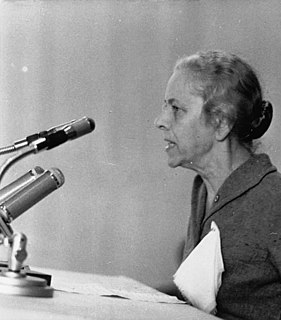 W
WMathilde Danegger was an Austrian stage and movie actress. Sources may also identify her by the pseudonym, Mathilde Leusch; Leusch is apparently a variant of her second husband's surname (Lesch).
 W
WRachel Dübendorfer was an anti-Nazi resistance fighter. During the Second World War, her codename was Sissy, and she was in a section of the Red Three Swiss resistance movement.
 W
WErnst Engelberg was a German university professor and Marxist historian.
 W
WErwin Geschonneck was a German actor. His biggest success occurred in the German Democratic Republic, where he was considered one of the most famous actors of the time.
 W
WHans Grundig was a German painter and graphic artist associated with the New Objectivity movement.
 W
WAugusta ("Aga") Clara Elisabeth Gräfin vom Hagen was a German painter, author and art patron.
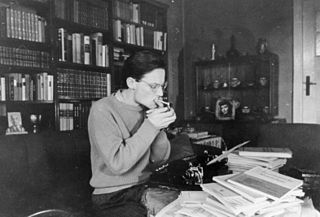 W
WWolfgang Harich was a philosopher and journalist in East Germany.
 W
WEmma Hellenstainer was a pioneer of Tirolean Gastronomy. She exhibited formidable talents, both as a businesswoman and in terms of what, during the twentieth century, would have become widely understood as marketing.
 W
WElse Himmelheber was a German resistance activist during the Nazi years. She was executed (shot) at the Dachau concentration camp on 30 November 1944.
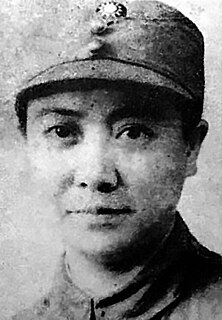 W
WHu Lanqi, also spelled Hu Lanxi, was a Chinese writer and military leader. She joined the National Revolutionary Army in 1927 and the Chinese branch of the Communist Party of Germany in 1930. She was imprisoned by Nazi Germany in 1933 and wrote an influential memoir of her experience, for which she was invited by Maxim Gorky to meet him in Moscow. After the outbreak of the Second Sino-Japanese War in 1937, she organized a team of women soldiers to resist the Japanese invasion, and became the first woman to be awarded the rank of Major General by the Republic of China. She supported the Communists during the Chinese Civil War, but was persecuted in Mao Zedong's political campaigns following the Communist victory in Mainland China. She survived the Cultural Revolution to see her political rehabilitation, and published a detailed memoir of her life in the 1980s.
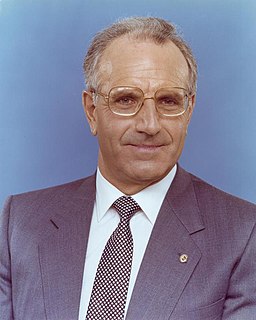 W
WWerner Jarowinsky was an East German economist who became a party official. Between 1963 and 1989 he was a member of the powerful Party Central Committee which, under the Leninist constitutional structure that the country had adopted after 1949, was the focus of political power and decision making. Within the Central Committee, from 1984 till 1989, he served as a member of Politburo which controlled and coordinated the work of the Central Committee on behalf of the leadership.
 W
WWerner Krauss was a German university professor.
 W
WMax Levien was a leading German-Russian communist politician. He was one of the co-founders of the Communist Party of Germany (KPD). As the first party chairman of the KPD in Bavaria, he was in April 1919 one of the protagonists of the Bavarian Soviet Republic that emerged in the wake of the German November Revolution of 1918.
 W
WUlrike Marie Meinhof was a German left-wing journalist and founding member of the Red Army Faction (RAF) in West Germany, commonly referred to in the press as the "Baader-Meinhof gang". She is the reputed author of The Urban Guerilla Concept (1971). The manifesto acknowledges the RAF's "roots in the history of the student movement"; condemns "reformism" as "a brake on the anti-capitalist struggle"; and invokes Mao Zedong to define "armed struggle" as "the highest form of Marxism-Leninism".
 W
WOtto Nagel was a German painter, graphic designer and long-time head of the Berlin Academy of Arts who was one of the most prolific artists of East Germany.
 W
WDieter Noll was a German writer. His best known work is the two volume novel Die Abenteuer des Werner Holt from the early 1960s which had sold over two million copies by his death.
 W
WHans Otto was a German stage actor. He came to prominence at a relatively young age. From the world of theatre, one of the greatest admirers of his talents, on and off the stage, was Bertolt Brecht. Towards the end of 1933 he was killed - most surviving sources use the verb "murdered" - by "Nazi paramilitaries", becoming one of the Hitler government's first victims from the world of the arts. At the time of his killing he had been a member of the Communist Party for almost ten years.
 W
WGustav Regler (1898-1963) was a German writer and journalist.
 W
WJohn Schehr was a German political activist who became a Communist Party politician and ultimately, chairman (leader) of the party, following the arrest on 3 March 1933 of Ernst Thälmann. By this time the country was very rapidly being transformed into a one-party dictatorship, meaning that the party John Schehr led was outlawed, with those members of the leadership team who had not escaped abroad now living "underground" (unregistered) and in hiding. Schehr was nevertheless arrested on 13 November 1933 and taken to a Berlin concentration camp. He died when he was one of four men shot by Gestapo officials, reportedly "while escaping" during an overnight transport, following arrest.
 W
WEugen Schönhaar was a German political activist (KPD) who became a resistance activist after the National Socialists took power. He died when he was one of four men shot by Gestapo officials, reportedly while escaping during an overnight transport following arrest. He and his three murdered comrades were rescued from anonymity thanks to a poem by Erich Weinert entitled "John Schehr und Genossen".
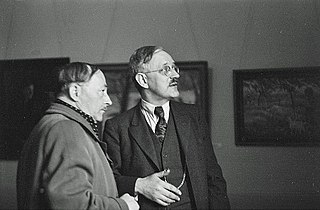 W
WMax Schwimmer was a German painter, graphic artist and illustrator.
 W
WMarie Luise Baroness of Münchhausen, born Baroness of Hammerstein-Equord, was a German lawyer. Despite being born into an aristocratic army family she became an activist member of the Communist Party. She worked for the party's intelligence service during the 1930s. She was treated with on-going suspicion and subjected to a number of interrogations by the security services between 1933 and 1945, although her party intelligence involvement is confirmed only in a document dated 1973.
 W
WGrete Walter was a German resistance activist during the Hitler years. She committed suicide by throwing herself from the third floor of a stairwell following a particularly brutal interrogation session at the Security Services' Main Office in Berlin.
 W
WGünther Wyschofsky is a former politician and official in the German Democratic Republic. He became a member of the powerful Central Committee of the country's ruling Socialist Unity Party in 1964. For more than two decades he also served as junior Minister for the Chemicals Industry.